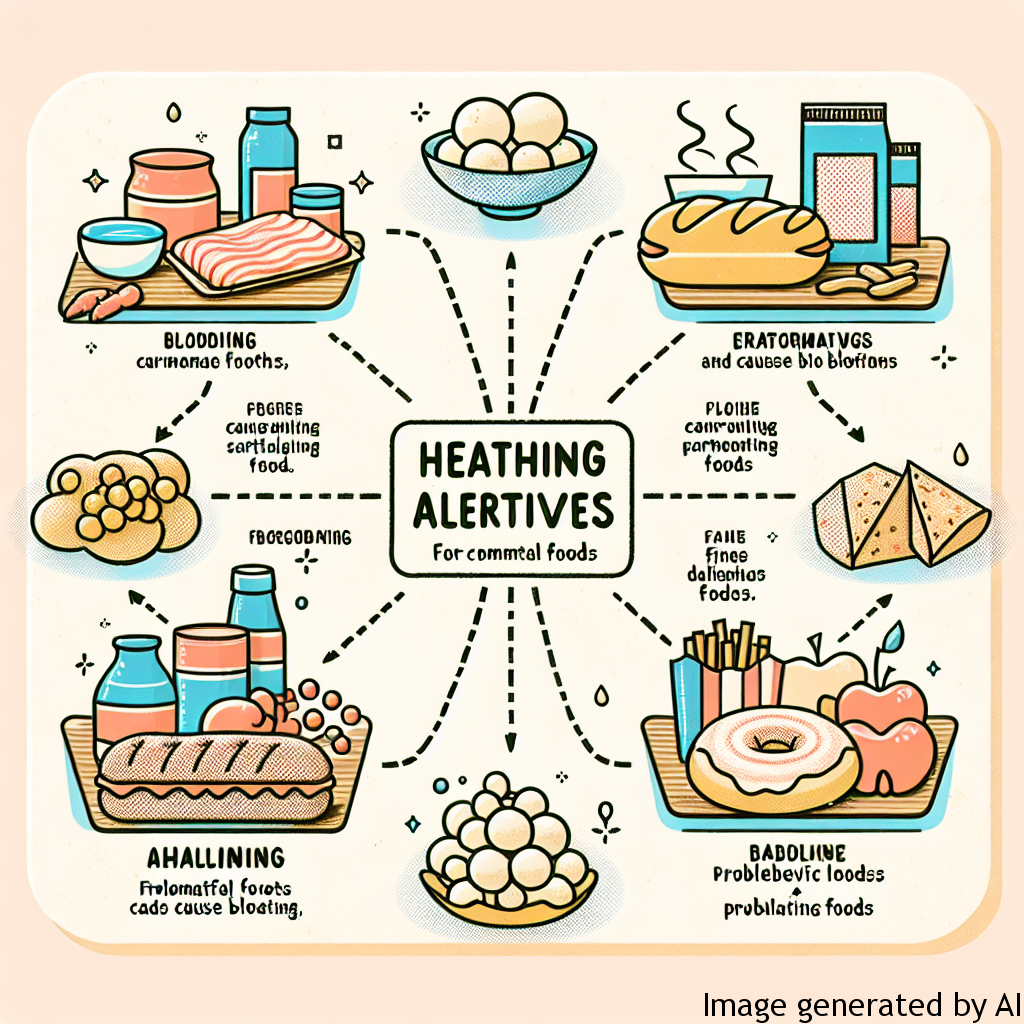Introduction
Food plays a significant role in the overall health of an individual. However, certain types of food can result in discomfort and digestive issues, such as bloating. Bloating is characterized by a feeling of increased pressure in the abdomen, leading to a sensation of fullness and gassiness. Many foods can lead to bloating due to their high fiber content, sugar content, or because they can produce gas in the gut. This article will discuss these foods that cause bloating and offer healthier alternatives.
Foods that Cause Bloating
Beans and Lentils
Rich in fiber and protein, beans and lentils are highly nutritious but can cause bloating because they contain the sugar raffinose, which is difficult for the body to breakdown. When it finally gets to the large intestine, bacteria break it down, causing gas which leads to bloating.
Dairy Products
Dairy products can cause bloating in people who are lactose intolerant. These products contain lactose, a sugar that might be hard for some individuals to digest, leading to bloating, cramps, and diarrhea.
Carbonated Drinks
Drinks like sodas and other carbonated beverages can lead to bloating. These bubbles can get trapped in the stomach and result in a bloated belly.
Healthier Alternatives
Alternatives for Beans and Lentils
Quinoa can be a great alternative to beans and lentils as it is highly proteinous and gluten-free. It also lacks the sugar raffinose that causes gas.
Alternatives for Dairy Products
People who are lactose intolerant can substitute dairy products with lactose-free milk, almond milk, or coconut milk. They are lactose-free and thus easier to digest.
Alternatives for Carbonated Drinks
Water, fruit juices, or herbal teas can be great substitutes for carbonated drinks. They not only hydrate the body but are also less likely to cause bloating.
Conclusion
While certain foods can cause bloating and digestive discomfort, alternatives exist that provide similar nutritional value without the undesirable side effects. Identifying and understanding your body’s response to particular foods is crucial in managing your diet and promoting overall health. It’s always important to consult a healthcare professional if you’re experiencing persistent bloating as it might be a symptom of a more severe medical condition.

